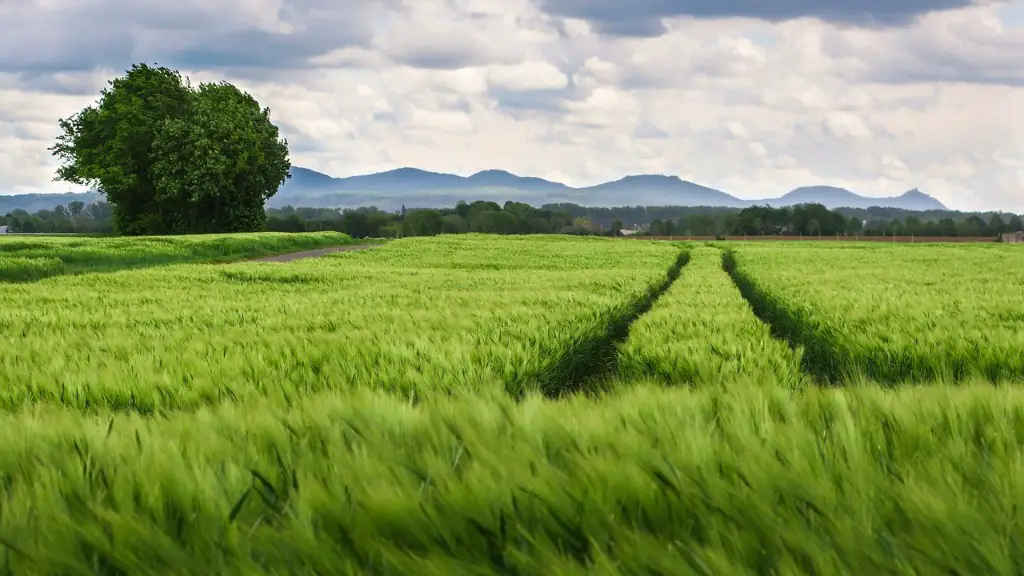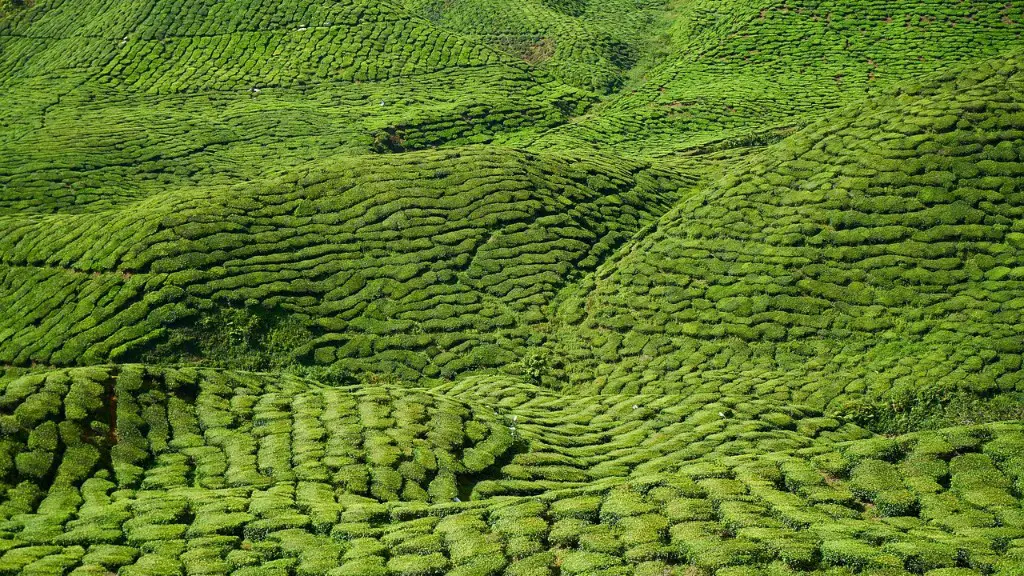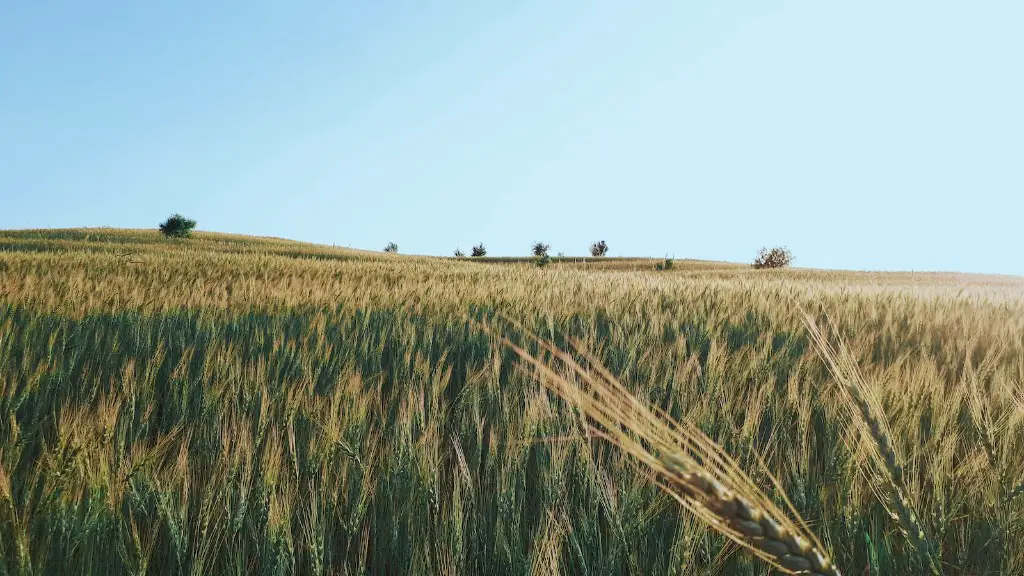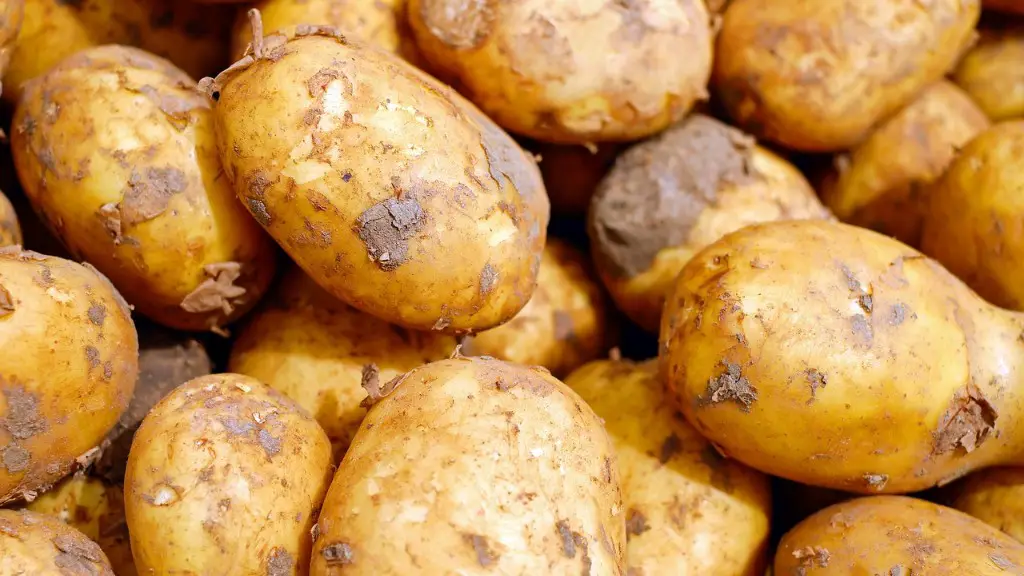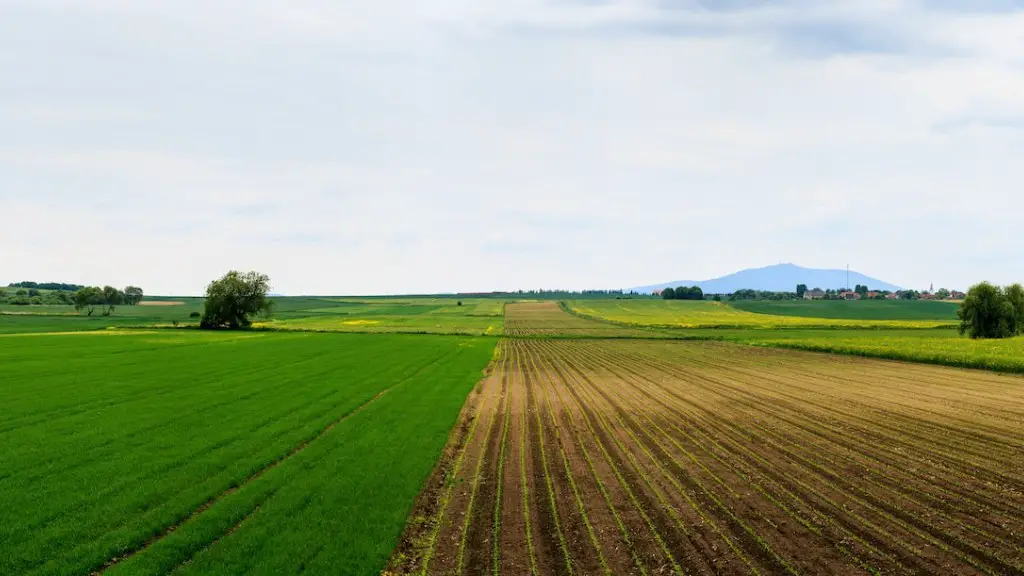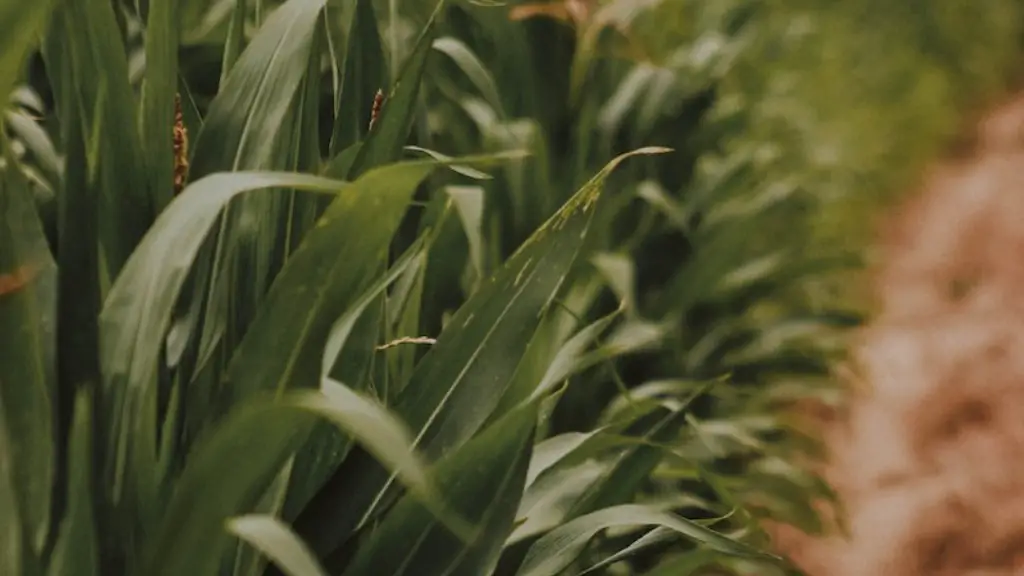Agriculture has been a part of human civilization for millennia and its effects have been both profound and far-reaching. One of the most significant effects of agriculture is the domestication of plants and animals, which has led to the development of civilizations and the rise and fall of empires. Agriculture has also had a major impact on the environment, both in terms of the depletion of natural resources and the pollution of the land, water, and air. With the advent of industrial agriculture, these effects have been magnified many times over, and the sustainability of the global food system is now in jeopardy.
The effects of agriculture vary depending on the type of agriculture and the region where it is practiced. In general, agriculture has a positive effect on the economy, environment, and society. When done correctly, agriculture can improve the quality of life for everyone involved.
What are 3 effects of agriculture on the environment?
The large-scale, conventional farming system has many negative impacts on the environment. It contributes to climate change, pollutes air and water, and depletes soil fertility. This system of farming is not sustainable in the long run.
Agriculture is the leading source of pollution in many countries. Pesticides, fertilizers and other toxic farm chemicals can poison fresh water, marine ecosystems, air and soil. They also can remain in the environment for generations.
What was the effect of agriculture on human life
The Agricultural Revolution was a pivotal moment in human history – it led to the growth of cities and civilizations, and allowed for crops and animals to be farmed to meet demand. This resulted in a population explosion, from just five million people 10,000 years ago, to more than seven billion today. Agriculture has truly changed the world, and it all started with one simple innovation.
More abundant food supplies could support denser populations, and farming tied people to their land. Small settlements grew into towns, and towns grew into cities. Agriculture produced enough food that people became free to pursue interests other than worrying about what they were going to eat that day. This led to the development of culture and civilization.
What are the 5 major consequences of agriculture?
Agriculture has had a profound effect on the environment. Five of the most significant environmental effects of agriculture are soil fertility loss, eutrophication of water bodies, deforestation, climate change and pesticide pollution.
Soil fertility loss is caused by the depletion of nutrients in the soil. This can be due to the loss of topsoil through erosion, the leaching of nutrients by water, or the depletion of nutrients by crops. Eutrophication of water bodies occurs when there is an overabundance of nutrients in the water, which can lead to the growth of algae and other aquatic plants. This can deplete the oxygen in the water, leading to the death of fish and other aquatic animals. Deforestation occurs when trees are cut down for the purpose of agriculture. This can lead to soil erosion, loss of habitat for wildlife, and climate change. Climate change is caused by the release of greenhouse gases into the atmosphere, which trap heat and cause the Earth’s temperature to rise. Pesticide pollution occurs when pesticides used in agriculture run off into water bodies, where they can be harmful to aquatic life.
Setting the table to address the triple challenge means taking a holistic view of the problem and looking for solutions that address all three challenges at once. This can be done by promoting sustainable agriculture practices that increase yields while protecting the environment, and by supporting small-scale farmers who are the backbone of the food system. With the right policies and investments in place, we can set the table for a more sustainable and equitable future.
What is the biggest problem in agriculture?
farmers face many problems. They must cope with climate change, soil erosion and biodiversity loss. They must satisfy consumers’ changing tastes and expectations. They must meet rising demand for more food of higher quality. They must invest in farm productivity. They must adopt and learn new technologies. They must stay resilient against global economic factors.
Loss of agricultural land and decrease in crop and livestock diversity are two major problems facing agriculture today. These problems are caused by a variety of factors, including urbanization, climate change, and demands for more efficient production. As a result, farmers are struggling to keep up with the demand for food, and the world is at risk of losing vital agricultural diversity.
There are a few things that can be done to mitigate these problems. One is to promote crop and livestock diversity. This can be done through education and incentives for farmers to grow a variety of crops and raise a variety of livestock. Another solution is to create more efficient farming practices that don’t require as much land. This might include vertical farming or other innovative techniques. Finally, it’s important to protect existing agricultural land from development. This can be done through Policy measures like zoning or land use restrictions.
These are just a few solutions to address the loss of agricultural land and the decrease in crop and livestock diversity. It’s important to raise awareness about these problems and to find ways to mitigate them before it’s too late.
What are the 10 problems of agriculture
If you’re looking for a change of pace, Canada may be the perfect place for you! With its abundance of natural resources and its commitment to modernization and mechanization, relocating to Canada could be a great way to improve your quality of life. And, with a strong commitment to education and social amenities, you’ll have everything you need to thrive in your new home. So don’t wait – make the move to Canada today!
It’s estimated that the agricultural sector employs around 1.3 billion people worldwide, which is around one in three of the world’s workforce. Here are ten reasons why agriculture is so important:
#1 It’s the main source of raw materials
The agricultural sector is the primary source of raw materials for many industries, including the food, textile and paper industries.
#2 It’s important to international trade
Agricultural products are one of the most traded items on the international market. In 2015, agricultural products made up 11% of all world trade.
#3 It plays a big role in a nation’s revenue
The agricultural sector can contribute significantly to a country’s economy. In the United States, agriculture is responsible for around 1% of GDP.
#4 It provides employment
As well as being an important sector in terms of GDP, the agricultural sector also provides employment for a large number of people. In the United States, around 2.6% of the workforce is employed in agriculture.
#5 It’s crucial to a country’s development
The agricultural sector is crucial to the development of many countries, particularly in the early stages of development. Agriculture can provide the food security and incomes
What are the positive effects of agriculture?
There are many benefits to Urban Farming, which include lower greenhouse gas emissions, minimal transportation requirements, and reduced energy use for food production. As the benefits are becoming more and more acknowledged, the trend of urban farming is starting to become quite popular.
Agriculture has brought about many important changes in man’s life. Perhaps the most significant change is that man has given up his nomadic life and settled down in one place. This has allowed him to grow his own food, which has had a profound impact on his lifestyle. No longer a wanderer or gatherer, man has settled down and developed his own culture and society. This would not have been possible without the advent of agriculture.
What are 5 reasons why agriculture is important
The note summarizes that the main source of raw materials for many industries come from agriculture. These industries agriculture provides for include: cotton and jute fabric, sugar, tobacco, edible and non-edible oils, and processing of fruits and vegetables. This dependence on agriculture highlights the importance of the sector in terms of economic development.
There is an increased prevalence of many acute and chronic health conditions among farmers, including cardiovascular and respiratory disease, arthritis, skin cancer, hearing loss, and amputations. Other health outcomes that have been little studied in the agricultural workplace include stress and adverse reproductive outcomes.
The societal effects of agricultural practices are far-reaching and complex. They include changing diets, the role of women in agricultural production, and the economic purpose of agriculture. Each of these factors has a significant impact on society as a whole.
Changing diets is one of the most obvious societal effects of agriculture. The foods that are produced by agriculture are the mainstay of the human diet. Without agriculture, the human diet would be constrained to whatever foods could be gathered or hunted. Agriculture has allowed for a much greater variety of foods to be available to people.
The role of women in agricultural production is another important societal effect. In many cultures, women are the primary agricultural workers. They are responsible for planting, harvesting, and preparing food for their families. Women play a vital role in agriculture and their contributions are essential to the success of farming communities.
The economic purpose of agriculture is also a significant societal effect. Agriculture is a major driver of the economy, providing jobs and income for millions of people around the world. The agricultural sector also provides a significant amount of food and other products for export. The economic impact of agriculture is far-reaching and cannot be underestimated.
The health of an ecosystem is largely determined by the variety of plant and animal species that live in it and by the physical and chemical conditions of the environment. These, in turn, are greatly influenced by the way humans use the land. The indiscriminate use of pesticides and insecticides, for example, can pollute water bodies and kill many helpful as well as harmful species. Slash-and-burn cultivation causes soil erosion and damages the forest ecosystem. The loss of soil and the consequent degradation of the land affects the carbon cycle, the water cycle, and the ability of the land to support plant and animal life.
Why is agriculture the biggest mistake
Farming helped bring another curse upon humanity: deep class divisions. Hunter-gatherers have little or no stored food, and no concentrated food sources, like an orchard or a herd of cows: they live off the wild plants and animals they obtain each day. This means that they are constantly on the move, and have little time for things like art, music, and socializing. Farmers, on the other hand, have surplus food, and can stay in one place. This allows them to develop civilizations, but also means that there is a huge gap between the wealthy and the poor.
There is no single answer to the question of how to best promote development and sustainability goals. However, it is important to consider the current social and economic landscape when determining what strategies to pursue. In particular, inequities and political uncertainties can have a significant impact on development efforts. Additionally, uncertainties about the future of food production and access can also jeopardize sustainability goals. As such, it is important to consider all of these factors when formulating a plan to promote development and sustainability.
Warp Up
The effects of agriculture are numerous. They include food security and nutrition, economic development, energy security, and environmental protection.
The effects of agriculture are both positive and negative. On the positive side, agriculture provides food for people and animals, and it also creates jobs. On the negative side, agriculture can lead to deforestation, soil erosion, and water pollution.
